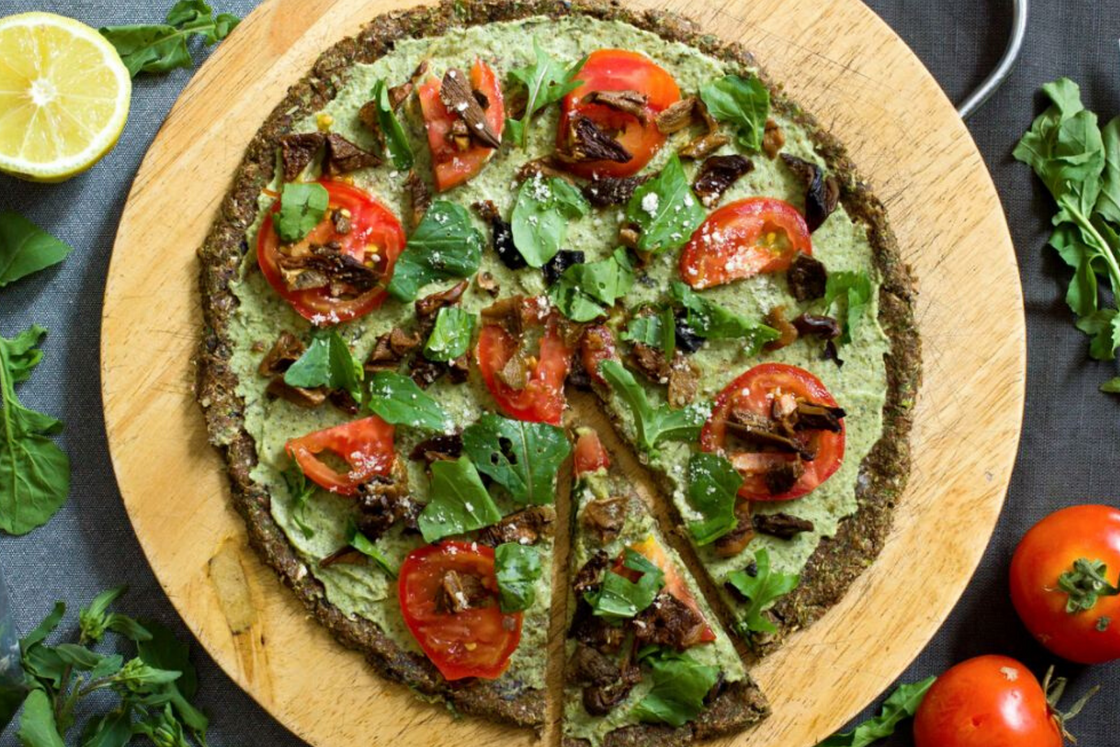A raw food diet is about eating all unprocessed and mostly or completely uncooked (raw) foods so you get all the nutrients without overcooking therefore depleting the nutrients, as well as, avoiding additives. A food is considered raw if it has never been heated over 104–118°F (40–48°C). It should also not be refined, pasteurized, treated with pesticides or otherwise processed in any way.
The raw food diet allows several alternative preparation methods instead, such as juicing, blending, dehydrating, soaking and sprouting. Soaking and sprouts of beans, lentils and lengumes is a must as these foods cannot be eaten raw due to the raw bean containing toxins.
Similar to veganism, the raw food diet is usually plant-based, being made up mostly of fruits, vegetables, nuts and seeds, and sprouted grains, beans and legumes. Sprouted rye bread is a great alternative to home made or store bought cooked breads.
While most raw food diets are completely plant-based, some people also consume raw eggs and dairy. Less commonly, raw fish and meat may be included as well. Supporters of the diet often claim that raw food will give you all the nutrients you need, so taking supplements is commonly discouraged when following a raw food diet. However, it is advised to supplement with vitamin B12 as this nutrient is more abundant in meat based foods rather than vegetarian foods. Vitamin D can also be considered if you don’t get enough sunshine.
We need enzymes for every bodily function; from breathing to walking to digesting food. Our bodies produce and store their own enzymes, but we also rely on the enzymes we get from raw or ‘living’ foods we eat. Applying heat (specifically above 48C) denatures some of the natural enzymes in food, so the body overworks itself by having to produce more of its own enzymes, exhausting its energy. Also, if you cook your food above 57C, it destroys heat-sensitive water soluble nutrients like Vitamin C and B vitamins – for example, tomatoes lose about 10% of their vitamin C content when cooked for just a few minutes. On the contrary though, cooking actually increases the availability of other nutrients and antioxidants, such as lycopene and beta-carotene. Cooking tomatoes releases the naturally occurring lycopene which is a powerful antioxidant known to reduce the risk of prostate cancer, stroke and osteoporosis, as well as, boosts the immune system and control cholesterol levels.
Overall, the health benefits one may experience by eating a mostly raw food diet includes weight loss, improved vitality, increased energy, improvement to chronic diseases, improved overall health and a reduced impact on the environment.
If you are thinking of following a completely raw food diet or just want to increase the raw foods in your existing diet, here is a quick go to list.
Foods to Eat:
• All fresh fruits
• All raw vegetables
• Raw nuts and seeds
• Raw grains and legumes, sprouted or soaked
• Dried fruits and meats
• Nut milks
• Raw nut butters
• Raw chocolate
• Raw yoghurt, milks
• Raw honey
• Himalyan crystal salt
• Cold-pressed olive, seed and coconut oils
• Fermented foods like kimchi and sauerkraut
• Seaweed
• Sprouts
• Raw eggs or dairy, if desired
• Raw meat or fish, if desired
Foods to Avoid:
• Cooked fruits, vegetables, meats and grains
• Baked items
• Roasted nuts and seeds
• Refined oils
• Table salt (iodized salt)
• Refined sugars and flour
• Pasteurized juices and dairy
• Honey
• Coffee and tea
• Alcohol
• Vinegar
• Pasta
• Pastries
• Chips
• Other processed foods & snacks



